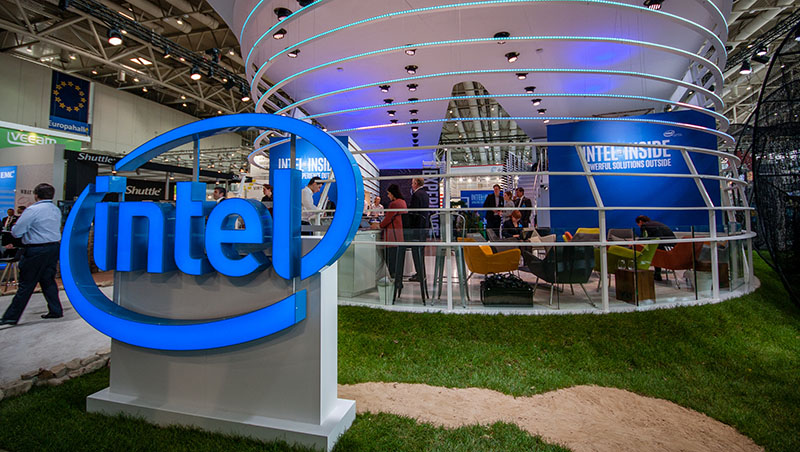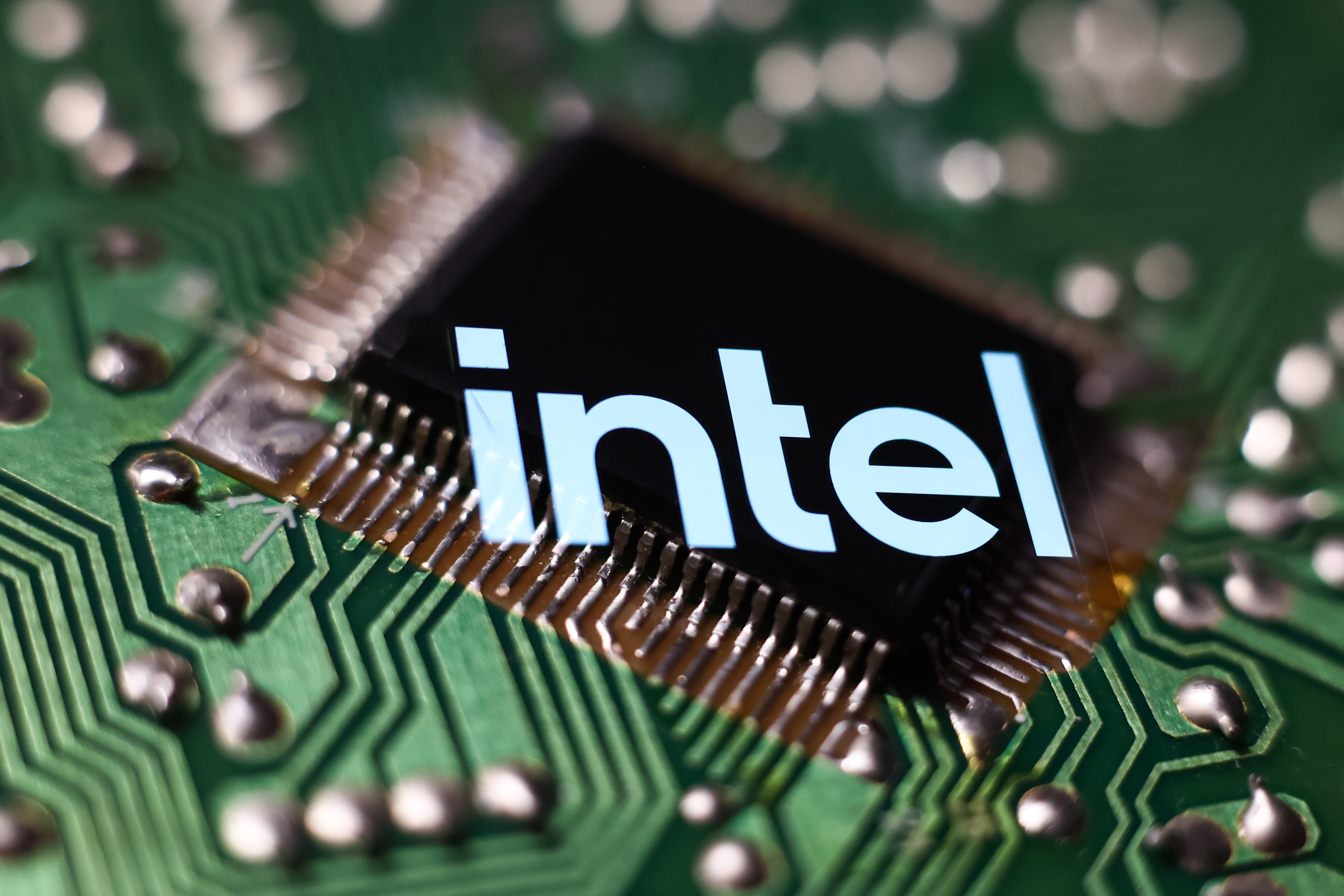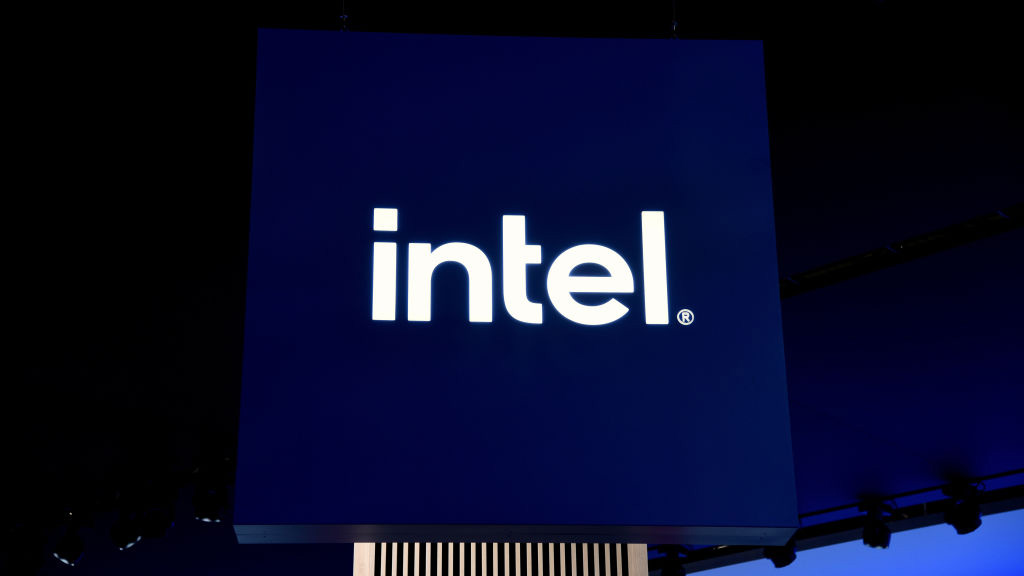Intel has hit a “major breakthrough” in quantum computing
The CES 2018 keynote covered quantum computers, self-driving cars and a self-learning AI chip


Intel proved its credentials as a jack of all trades at CES 2018 during CEO Brian Krzanich's keynote speech last night. After leading with the news that the company will fix all Meltdown vulnerabilities by the end of the month, Krzanich launched into a far-reaching talk which covered driverless cars, self-learning AI chips and virtual reality.
But the main event was a "major breakthrough" in quantum computing, with the company announcing a 49-qubit quantum chip something Krzanich described as the next step to "quantum supremacy". The company, he said, is committed to forwarding the cause of quantum computing with a lab in the Netherlands dedicated to working on the quantum computers of tomorrow.
While there is no timeline details on the quantum chip codenamed Tangle Lake Krzanich was clear that this nascent technology could one day help solve the biggest problems humanity faces, taking minutes to solve problems that our current supercomputers take months or years to calculate, including drug development and climate modelling.
A little closer to the computers of today is another new processor: Loihi, an AI test chip. The neuromorphic chip is now fully functional and is apparently already performing simple object recognition in the labs. The plan is to allow third parties to use this self-learning AI chip for their own use cases over the next few years.
Then there are driverless cars a 100-strong test fleet, to be precise. The company's emergence in this area is no surprise, given it bought Mobileye, an autonomous car software firm, for $15 billion last year, but Intel seems to be making progress, demonstrating a car with 12 cameras and a 180-degree field of view, letting the vehicle "see" up to 300 metres ahead. Even if its own vehicles aren't a runaway success, Intel reported that two million vehicles from the likes of BMW, Nissan and Volkswagen will use technology from Mobileye throughout 2018 which makes last year's acquisition look like a shrewd one.
Elsewhere, Krzanich covered innovative VR initiatives triggered by the company's partnership for the upcoming Winter Olympics. Thirty events will be viewable from different angles both live and on demand, the company said, and it would be expanding the initiative to the NFL with cameras installed inside players' helmets. A partnership with Paramount Pictures will even see if this approach works for movies, with hundreds of cameras letting viewers "be the actor" or view the movie from any number of different angles.
You can watch the full keynote above.
Get the ITPro daily newsletter
Sign up today and you will receive a free copy of our Future Focus 2025 report - the leading guidance on AI, cybersecurity and other IT challenges as per 700+ senior executives
Main image credit: Bigstock
After a false career start producing flash games, Alan Martin has been writing about phones, wearables and internet culture for over a decade with bylines all over the web and print.
Previously Deputy Editor of Alphr, he turned freelance in 2018 and his words can now be found all over the web, on the likes of Tom's Guide, The i, TechRadar, NME, Gizmodo, Coach, T3, The New Statesman and ShortList, as well as in the odd magazine and newspaper.
He's rarely seen not wearing at least one smartwatch, can talk your ear off about political biographies, and is a long-suffering fan of Derby County FC (which, on balance, he'd rather not talk about). He lives in London, right at the bottom of the Northern Line, long after you think it ends.
You can find Alan tweeting at @alan_p_martin, or email him at mralanpmartin@gmail.com.
-
 Google faces 'first of its kind' class action for search ads overcharging in UK
Google faces 'first of its kind' class action for search ads overcharging in UKNews Google faces a "first of its kind" £5 billion lawsuit in the UK over accusations it has a monopoly in digital advertising that allows it to overcharge customers.
By Nicole Kobie
-
 Neural interfaces promise to make all tech accessible – it’s not that simple
Neural interfaces promise to make all tech accessible – it’s not that simpleColumn Better consideration of ethics and practical implementation are needed if disabled people are to benefit from neural interfaces
By John Loeppky
-
 Gaining timely insights with AI inferencing at the edge
Gaining timely insights with AI inferencing at the edgeWhitepaper Business differentiation in an AI-everywhere era
By ITPro
-
 Scaling AI from pilot to production: Maximize AI impact with HPE & Intel
Scaling AI from pilot to production: Maximize AI impact with HPE & IntelWhitepaper Transform AI proof-of-concepts into full-scale implementations
By ITPro
-
 UK supercomputer boom as HPE and Dell receive funding for new AI cluster
UK supercomputer boom as HPE and Dell receive funding for new AI clusterNews The UK’s AI computing capabilities will increase by an order of magnitude in 2024
By Rory Bathgate
-
 AI gold rush continues as Hugging Face snags $235 million from IBM
AI gold rush continues as Hugging Face snags $235 million from IBMNews The investment round, which brings the company's valuation to $4.5 billion, also includes Amazon, Google, Intel, and Salesforce
By Richard Speed
-
 Why is ASUS reviving Intel’s NUC mini-PC line?
Why is ASUS reviving Intel’s NUC mini-PC line?News The diminutive PC is to rise again while analysts look for the business case
By Richard Speed
-
 Intel targets AI hardware dominance by 2025
Intel targets AI hardware dominance by 2025News The chip giant's diverse range of CPUs, GPUs, and AI accelerators complement its commitment to an open AI ecosystem
By Rory Bathgate
-
 Why aren’t factories as smart as they could be?
Why aren’t factories as smart as they could be?Whitepaper How edge computing accelerates the journey to a remarkable factory
By ITPro
-
 Who needs Intel vPro®, An Intel® Evo™ Design, anyway?
Who needs Intel vPro®, An Intel® Evo™ Design, anyway?Sponsored With flexible work on the up, the demand for high performance on-the-go business laptops has never been greater
By ITPro